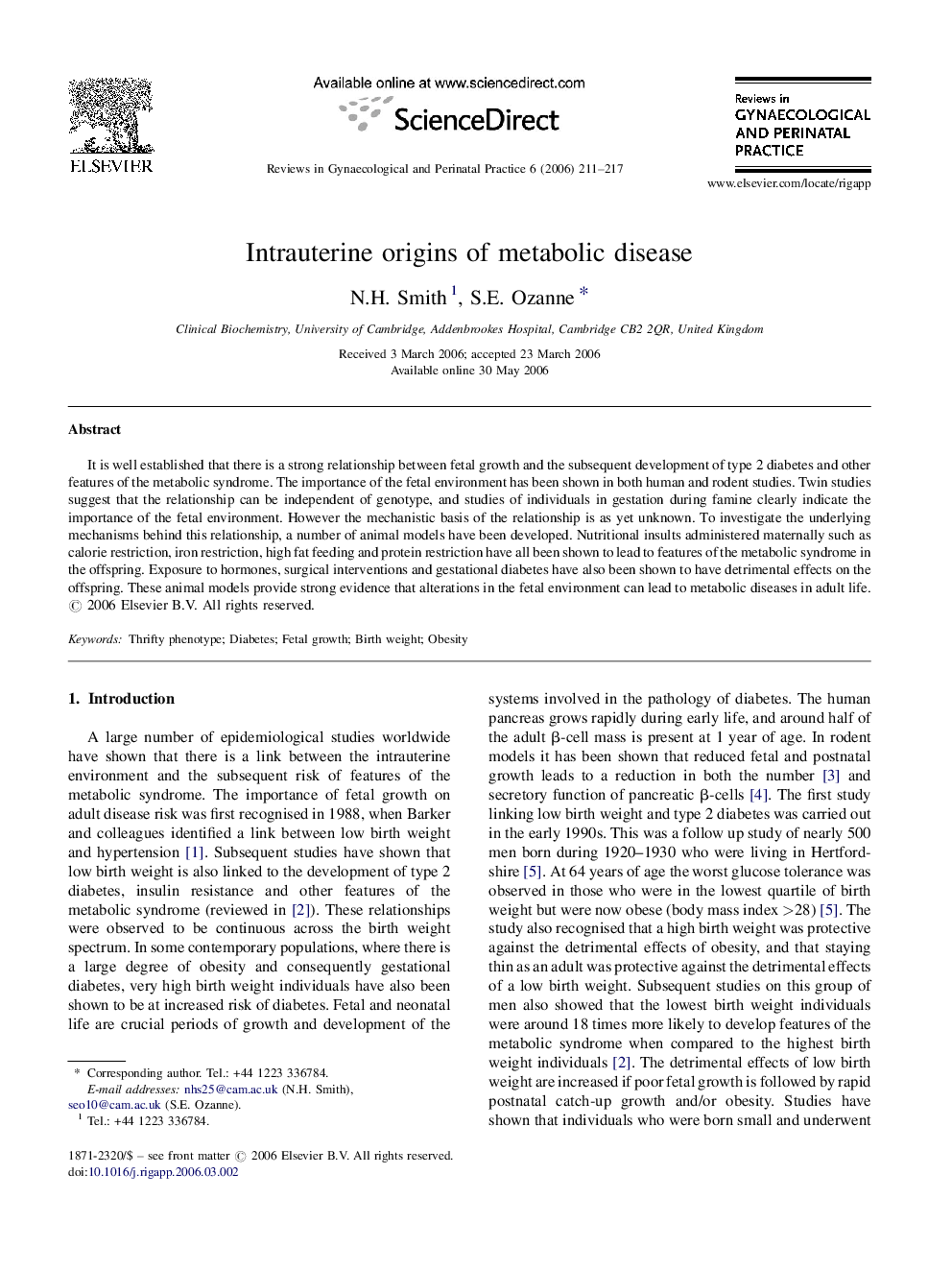| Article ID | Journal | Published Year | Pages | File Type |
|---|---|---|---|---|
| 3973697 | Reviews in Gynaecological and Perinatal Practice | 2006 | 7 Pages |
It is well established that there is a strong relationship between fetal growth and the subsequent development of type 2 diabetes and other features of the metabolic syndrome. The importance of the fetal environment has been shown in both human and rodent studies. Twin studies suggest that the relationship can be independent of genotype, and studies of individuals in gestation during famine clearly indicate the importance of the fetal environment. However the mechanistic basis of the relationship is as yet unknown. To investigate the underlying mechanisms behind this relationship, a number of animal models have been developed. Nutritional insults administered maternally such as calorie restriction, iron restriction, high fat feeding and protein restriction have all been shown to lead to features of the metabolic syndrome in the offspring. Exposure to hormones, surgical interventions and gestational diabetes have also been shown to have detrimental effects on the offspring. These animal models provide strong evidence that alterations in the fetal environment can lead to metabolic diseases in adult life.
